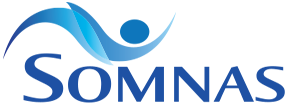The Power of Napping for Insomniac: How Napping Can Be Your Productivity Secret Weapon to Boost Energy, and Memory
- Imtiaz Ahmad MD, MPH, FCCP
- CPAP & Sleep Therapy, Sleep, Sleep & Health, Sleep & Lifestyle, Sleep Diagnostics
- Doxepin, Melatonin, sleep aid

Table of Contents
For insomnia sufferers, a restful night’s sleep may seem unattainable. Yet what if mastering daytime napping was the missing link? Counterintuitively, studies show that incorporating short snoozes into daily routines can positively impact insomnia.
Regular naps have been demonstrated to reset circadian rhythms and enhance overall sleeping patterns. Napping reduces languor while boosting clarity and focus. Moreover, napping alleviates difficulties initiating and maintaining sleep.
However, the timing and duration of naps matter greatly. Brief 20-minute power naps boost alertness, whereas longer 60-90 minute siestas induce deeper rest.
Thus, if nights leave you restless, consider embracing napping’s potential. With this hack, you may finally gain the reinvigorating rest deserved and awaken feeling refreshed.
In modernity’s incessant demands for productivity, weariness inevitably shadows those battling sleeplessness. For insomniacs, days work under caffeine’s influence and tenacity alone, only to later crash and struggle to recharge. Yet amid this daily grind exists a simple natural solution holding the key to vanquishing fatigue, bolstering memory retention, and ultimately unlocking productivity – the underestimated strength of napping.
While often dismissed as a lethargic indulgence, science validates napping’s array of advantages. Counter to assumptions, a strategically scheduled short nap is not a luxury but rather reinvigoration’s tool, poised to elevate performance overall.
Fighting Fatigue with Power Naps:
The Science of Napping:
To understand why sleep is good for you, you need to look into the science behind it. Complementing our natural circadian pattern, the body lowers energy levels in the afternoon, sometimes referred to as the “afternoon slump.” Strategic naps around this time can provide a revitalizing energy boost.
Studies on people in Spain—a nation where midday siestas are somewhat common—revealed interesting results. Regular, quick naps showed a 21% decreased risk of raised blood pressure than non-nappers. These results highlight how napping could help to promote general cardiovascular health.
Reducing Fatigue:
In a world defined by rigorous job schedules, family responsibilities, and continual electronic stimulation, tiredness has grown rather common. For those suffering from insomnia, this is a much more serious issue. Although a solid night’s sleep is still very vital for health, brief naps provide a quick fix for tiredness, particularly in the mid-afternoon energy dip.
Napping has been linked to lower cortisol levels, the stress hormone, providing a brief break from daily demands. Giving our bodies the chance to rest and rejuvenate helps napping to be a natural remedy for the stress of daily life.

Boosting Memory with a Midday Siesta:
Unlocking Productivity Potential with Strategic Snoozes:
Contrary to the belief that napping results in indifference, research show its ability to improve output. Naps become a catalyst for better decision-making and problem-solving by enhancing cognitive ability, raising attentiveness, and lowering decision-fatigue. After a power nap, picture confronting difficult chores with fresh concentration and energy; the opportunities are almost endless.
Napping for Success: Tips and Tricks:
- Time it Right : Choose early afternoon, around 2 pm, for a starting point, but avoid napping too close to bedtime.
- Keep it Short and Sweet : Choose early afternoon, around 2 pm, for a starting point, but avoid napping too close to bedtime.
- Create a Calm Environment : Choose early afternoon, around 2 pm, for a starting point, but avoid napping too close to bedtime.
- Set an Alarm : Choose early afternoon, around 2 pm, for a starting point, but avoid napping too close to bedtime.
- Listen to Your Body : Not everyone benefits from napping; adjust the duration or skip it if it doesn't enhance your well-being.
Napping is essentially a strategic tool for fighting tiredness, improving memory, and releasing production potential—not a crutch. Thus, don’t hesitate to welcome a brief power sleep the next time you sense the afternoon slump approaching. How much better you feel and how much more you can accomplish will pleasantly surprise you.
Although napping has many advantages, those with underlying sleep problems or constant tiredness should see a medical practitioner for specific advice.
QUESTIONS ABOUT A SLEEP ISSUE? LET’S TALK.
Imtiaz Ahmad, MD, MPH, FCCP
Dr. Imtiaz Ahmad is a highly qualified physician, Board Certified in Pulmonary and Sleep Medicine. He has received advanced training from some of the most prestigious institutions, including Harvard University, Cornell University, State University of New York at Brooklyn, and the University of Mississippi. SOMNAS is a medical facility that is committed to improving and maintaining the health of patients with sleep disorders. The expert team at SOMNAS is known for their compassionate and high-quality care. They offer unparalleled treatment and care to patients on the Gulf Coast of Florida, ensuring a better and healthier life for them.
Job Title: Board Certified in Pulmonary Medicine


